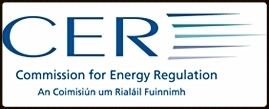anticipation of forthcoming penalties
There are rumours floating around the web that Alan Kelly, Minister for Environment, Community and Local Government, is bringing out, after the Easter Holidays, measures to combat non payers of the disputed water charges. After the good weather over the Easter break all Government ministers will be returning to the arena, well tanned, refreshed and raring to go. They will be there cheering Alan Kelly, urging him on to fulfil Nero's destiny and send the lions in to maul the condemned protesters who defied him by refusing to pay.
For anyone not up to speed with the issues around Irish Water, Buncrana Together wrote an article (Fine Gael/Labour Government Panic Over Non Payment Of Water Charges). This should give you details on the background.
What will his punishment be? Will it have the desired effect? The lions are waiting with bated breadth. Will his punishment be, creating fast-track courts, taking money out of wages, deductions from social welfare benefits or putting it on rents or property? He will give us his answer maybe this week. As for the desired effect, Alan should take a lesson from Nero who chose to persecute the Christians in hideous ways to cover up his mistakes. Despite his great brutality Nero found himself public enemy and he was brought down.
In the end of the day it may not matter what legislation the Irish Government brings in. Fliuch, a Cork based anti water charge group, has told us " Apparently Alan Kelly is bringing in the legislation when they come back after the Easter break but whatever he brings in can't kick in until the already announced penalty dates expire."
Alan Kelly Minister for Environment
Interesting! What penalties? Does legislation exist already to tackle nonpayment?
Irish Water state on their web page
"The Water Services Act (No.2) Act 2013 does not allow customers to be disconnected for not paying their water bill. Irish Water will engage with customers to understand the reason for non-payment and may be able to provide a solution, taking into account the customer’s circumstance.
All customers who have unpaid arrears of at least the annual capped charge and haven’t entered into a payment plan with Irish Water, will attract an automatic late payment penalty of €30 (1 adult household) or €60 (all other households) for each year that the charges remain unpaid. This will be added to bills three months following a year of non-payment."
So it turns out there are penalties on the statute books already, kicking in after 15 months and these charges will be levied each year of non-payment.
Ruth Coppinger TD
Ruth Coppinger, Socialist TD, said in the Irish Examiner on March 24, 2015
"On penalties we will now have to see if the Government are going to change the law for a third time, their only other option is to impose heavy fines, let’s see if they dare to change the law,”









